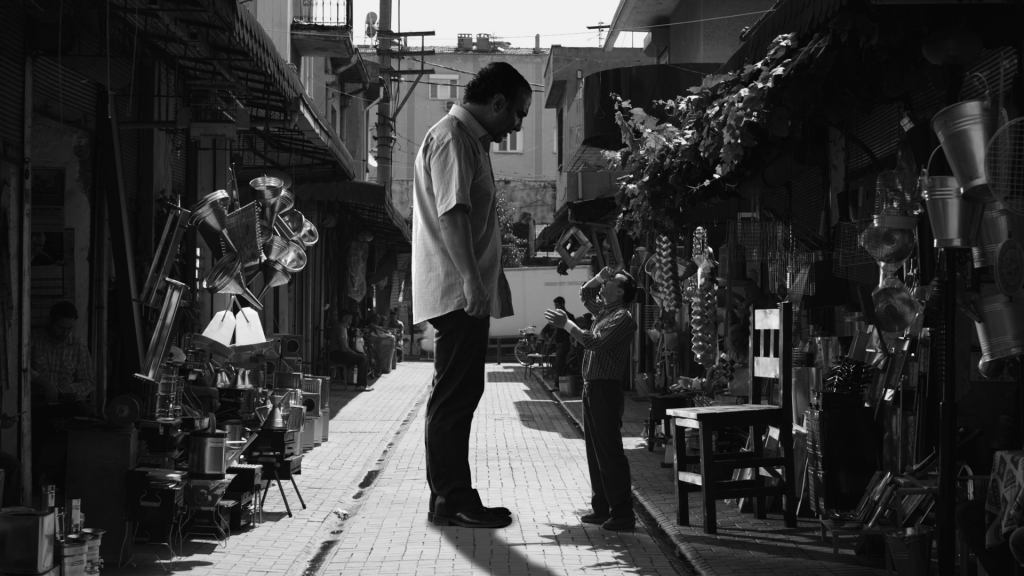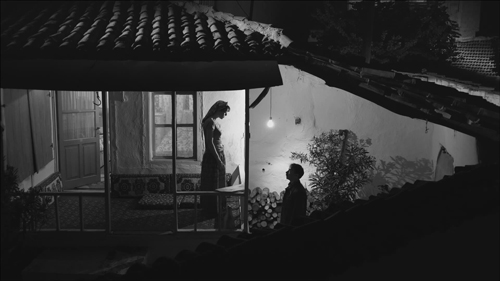“Man is created of anxiety.”
Stating the premise at its poster, Thou Gild’st the Even (Sen Aydınlatırsın Geceyi) is a Turkish magic realist/drama film directed by Onur Ünlü. The film immerses the viewer in the romantic melancholy, and the tone is so powerful that you might want to watch it for the experience than the story.
The story takes place in a small Anatolian town with two suns and three full moons in the sky. Cemal (Ali Atay) lives with his father after losing his mother and siblings to a fire. The sorrows of the past never leave him, so, Cemal spends his life mostly daydreaming in his inner world. He falls in love with Yasemin (Demet Evgar), but his anxiety gets between him and peaceful life.
Our hero doesn’t believe he has authority over his life, except the occasional soccer games he referees. Cemal tells about a spinning wheel in his head that it spins madly, and he cannot stop it. He gets to literally stop a spinning wheel after meeting Yasemin. When he gets confused on his path, rocks fall down the sky like rain. The universe openly shows Cemal the way, but the story doesn’t proceed as a fairy tale and more like a Shakespearean tragedy. The film takes its name from Shakespeare’s 28th Sonnet.
In this town, where the distinction between good and evil is blurry, people have ordinary worries. But they also have superpowers. For instance, walls are not a boundary for Cemal (maybe except the fourth wall): he can see and walk through them. Yasemin has telekinetic powers. Other characters include a giant, an invisible elementary school teacher, a man who cannot die, a girl who can stop time… Unlike in superhero movies, the characters in Thou Gild’st the Even don’t get to save the world using their powers. Their powers don’t even have a tangible use to the heroes.

The film repeatedly features two songs that are perfect for the tone of the film. One is the theme music of Caramel, “Mreyte Ya Mreyte” by Khaled Mouzanar, and the other is “Gülmek İçin Yaratılmış,” performed by Mehmet Erdem. Both songs immerse the viewer into Cemal’s melancholy and the tragedy.
Onur Ünlü is one of the directors that take an alternative path in contrast to the traditional Turkish cinema. The director has a fanbase owing to his absurd works of dark comedy, especially following his television series Leyla and Mecnun. This film can be considered as a noteworthy example of the Turkish arthouse cinema.
Thou Gild’st the Even never got released in the theatres. The film was previewed in various cities with the director and the actors in attendance. It is a story of emotions, struggles, romance, as well as politics and existence. I’d recommend anyone to see the movie as a fantastic implementation of Shakespeare to the Anatolian context.
